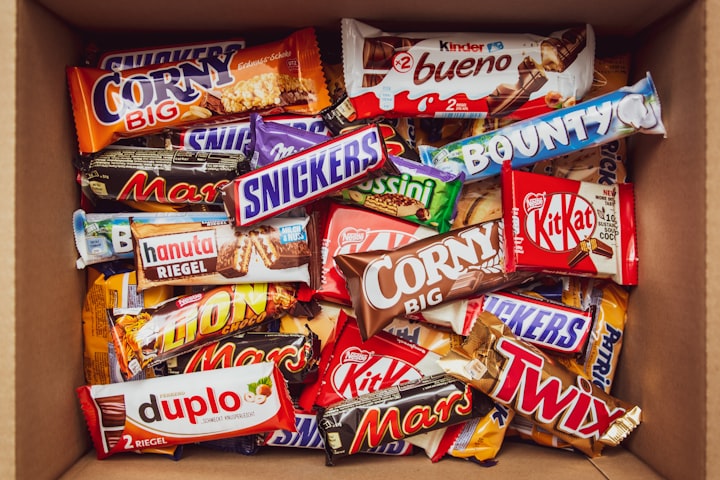
Who can resist the allure of warm, gooey cookies, decadent cakes, or luscious ice cream? The mere thought of these sugary delights can make our mouths water and trigger intense cravings. But have you ever wondered why sugar is so hard to resist? This article delves into the fascinating realm of how sugar affects the brain, shedding light on the neural pathways and chemical reactions that make sugary foods so enticing.
Unveiling the World of Sugar:
Sugar is a broad term encompassing a range of molecules known as carbohydrates. It lurks in a multitude of food and beverage options, from common candies and desserts to unsuspecting items like tomato sauce, yogurt, and granola bars. Glucose, fructose, sucrose, maltose, lactose, dextrose, and starch are all different forms of sugar, along with high-fructose corn syrup, fruit juice, raw sugar, and honey.
The Brain's Encounter with Sugar:
When sugar meets our taste buds, it sets off a complex chain of events in the brain. Upon taking a bite of a sugary cereal, for example, the sweet-taste receptors on the tongue send signals to the brain stem, which then branches out to various regions, including the cerebral cortex. Different sections of the cerebral cortex are responsible for processing different tastes, with one dedicated to sweetness. The activation of this cortex sets off the brain's reward system, a network of electrical and chemical pathways across multiple regions.
The Reward System Unveiled:
The brain's reward system plays a vital role in determining our behavior and decision-making. It consists of intricate pathways that respond to various stimuli, including food, social interactions, sexual experiences, and even drugs. When activated, this system generates feelings of pleasure and reinforces the subconscious desire to repeat the action that triggered the reward. That warm, fuzzy feeling you experience when savoring your grandmother's chocolate cake? It's your brain's way of saying, "Yes, please!"
Unintended Consequences:
However, overstimulating the reward system by excessive sugar consumption can lead to unintended consequences. Loss of control, increased cravings, and a heightened tolerance to sugar can ensue. The desire for that pleasurable experience drives individuals to seek out sugary foods in a manner akin to addiction. Understanding the interplay between sugar, dopamine (a key neurotransmitter), and the reward system helps shed light on this phenomenon.
The Sugar's Journey:
As sugar-laden food makes its way through our bodies, the story continues. Sugar receptors in the stomach and gut send signals to the brain, indicating feelings of fullness or the need for increased insulin production. In this intricate dance of chemical signaling, dopamine plays a crucial role. Dopamine receptors are abundant in the forebrain, and their activation contributes to the rewarding effects of sugar consumption.

The Dopamine Dance:
While sugar-induced dopamine release is not as intense as that triggered by drugs, it remains a significant player in our brain's reward system. Surprisingly, sugar stands apart from many other dopamine-inducing foods, such as broccoli, which elicits no dopamine response. This peculiarity may explain the difficulty in enticing children to embrace healthier, nutrient-rich foods.
The Quest for Novelty:
Our brain's attention to new or different tastes is rooted in evolutionary advantages. Firstly, it helps us detect spoiled or harmful food. Secondly, a diverse diet ensures we acquire a wide range of essential nutrients. To maintain variety, our brain seeks out novel foods, triggering dopamine release. However, this drive for diversity also means that familiarity with a particular food can lead to diminished dopamine response and reduced interest.
Sugar's Slippery Slope:
In contrast to the leveling effect of repeated consumption of a balanced meal, excessive sugar intake perpetuates the dopamine response, keeping the rewarding feeling alive. In this respect, sugar exhibits characteristics reminiscent of a drug, contributing to the perceived addictive nature of sugary foods. Nonetheless, occasional indulgences in a slice of cake or sweet treat do not pose significant harm.
In Conclusion, understanding the intricate relationship between sugar, the brain, and our reward system provides valuable insights into our cravings and the potential addictive effects of excessive sugar consumption. While sugar's allure is undeniable, moderation remains key. By balancing our intake and embracing a diverse, nutrient-rich diet, we can savor the occasional sweet indulgence without compromising our well-being.





Comments
Lena B is not accepting comments at the moment
Want to show your support? Send them a one-off tip.